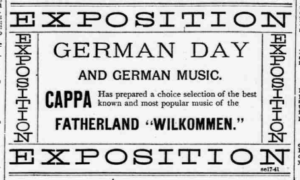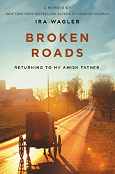We’re very happy to present this tremendous collection of articles, edited by Heike Paul, Martina Kohl, & Hans-Jürgen Grabbe: asjournal.org/69–2020/
A New Millennium?

January 1, 2000. Not just a new century, but a new millennium. Spotless, for the briefest moment, though far from empty. Arriving so brimful of promise and hope. “What will it be like?” we wondered, staring almost child-like at the clock as it approached the new era. A brand-new, unopened, ready-to-use millennium! And this time, with all we’d learned over past millennia, we would get things right.
Knock on wood.
More Than Just a Blurred Ethnic Identity: Teaching German American Day
It is one of the founding myths of “German Americana” that the first migrants from German-speaking territories arrived on October 6, 1683, on North American soil. Unsurprisingly, German Americans have always sought to celebrate this particular date in order to promote and to secure German American traditions and interests. Such celebrations, formerly often called “German Day,” flourished during the 19th century and ceased after the world wars. After the 1983 tricentennial, German American stakeholders were able to revive and to continue the celebrations: On August 18, 1987, Congress approved a joint resolution to designate October 6, 1987, as German-American Day.
Since that time, most American presidents have issued annual proclamations to celebrate the achievements and contributions of German Americans to our Nation with appropriate ceremonies, activities, and programs. Also, German American societies have taken on the ‘task’ and included annual German-American Day celebrations into their calendars, often in combination with the famous Oktoberfest.

Ira Wagler’s Serial Memoir Broken Roads: Returning to My Amish Father
I know the monsters that lurk in the recesses of the mind and in
the dark corners of the heart. I know, because I deal with my own demons
of what was and what might have been. I’ve heard those voices calling in the night.
I understand, because I poked my head through that door and looked around a bit.
And I gotta say, it’s not a terribly scary place. I wasn’t frightened there,
in that room where death is. I understand why people go there.
And I understand why people chose to stay there.
Ira Wagler, Broken Roads, p. 187–188
-
 Growing Up Amish, Ira Wagler’s New York Times bestseller has sold some 185,000 copies since it first appeared in 2011. A writer whose first book makes that list has much to live up to. Some writers never make it past the first book, while others end up wishing they had only written one. And if I am honest, I have to admit that I was somewhat concerned about what I would do if I didn’t like Ira Wagler’s new book. After all, he’s been to my university twice, and over the years, I’ve got to know and appreciate him. The book is not quite what I had expected, and it is truly different in a few key ways from his first publication.
Growing Up Amish, Ira Wagler’s New York Times bestseller has sold some 185,000 copies since it first appeared in 2011. A writer whose first book makes that list has much to live up to. Some writers never make it past the first book, while others end up wishing they had only written one. And if I am honest, I have to admit that I was somewhat concerned about what I would do if I didn’t like Ira Wagler’s new book. After all, he’s been to my university twice, and over the years, I’ve got to know and appreciate him. The book is not quite what I had expected, and it is truly different in a few key ways from his first publication.
Politics and Religion in a Secular State
It is ironic that, as the world’s first secular democracy having scorned all state religion, we soon became and have remained, socially and politically, preoccupied with god. Campaign speeches end with “God bless you.” The song, “God Bless America,” which Irving Berlin wrote as a parody sung by a comically chauvinistic character, is now performed as a patriotic hymn.

In a trying political climate, look not towards what divides, but what unites Germany and the U.S.: Journalistic Excellence
Are German-American relations in a critical state? If public opinion surveys are anything to go by, perhaps so – at least according to Germans. While Americans generally still hold on to a positive image of Germany, the same cannot be said for the way most Germans view the United States. A jointly conducted poll by the Pew Research Center and the Körber-Stiftung revealed late last year that while “three-quarters of Americans see relations with Germany as good,” nearly “two-thirds of Germans (64%) see relations as bad.” More alarmingly, the New York Magazine quotes a survey conducted by YouGov revealing that Germans view President Trump as “a greater threat to world peace than any other head of state” – a noteworthy distinction, especially in light of the existence of other controversial leaders, such as the likes of Kim Jong Un and Vladimir Putin.







